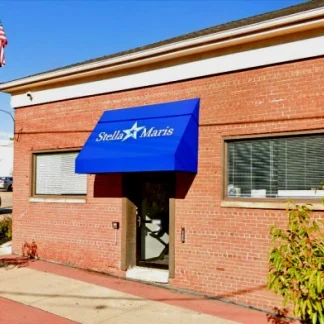Women's Recovery Center
Women’s Recovery Center is a private rehab located in Cleveland, Ohio. Women’s R...
Stella Maris - 1302 Washington Avenue is a non-profit rehab located in Cleveland, Ohio. Stella Maris - 1302 Washington Avenue specializes in the treatment of Substance, Drug and Alcohol Abuse. Stella Maris provides quality chemical dependency treatment and mental health services to the community regardless of race, sex, religion or ability to pay.
Contact us for more information: (216) 781-0550

Connect with Stella Maris - 1302 Washington Ave by calling their admissions team directly.
(216) 781-0550 Website Get DirectionsThe Joint Commission, formerly known as JCAHO, is a nonprofit organization that accredits rehab organizations and programs. Founded in 1951, the Joint Commision's mission is to improve the quality of patient care and demonstrating the quality of patient care.
Joint Commission Accreditation: Yes
Research clearly demonstrates that recovery is far more successful and sustainable when loved ones like family members participate in rehab and substance abuse treatment. Genetic factors may be at play when it comes to drug and alcohol addiction, as well as mental health issues. Family dynamics often play a critical role in addiction triggers, and if properly educated, family members can be a strong source of support when it comes to rehabilitation.
Group therapy is any therapeutic work that happens in a group (not one-on-one). There are a number of different group therapy modalities, including support groups, experiential therapy, psycho-education, and more. Group therapy involves treatment as well as processing interaction between group members.
In individual therapy, a patient meets one-on-one with a trained psychologist or counselor. Therapy is a pivotal part of effective substance abuse treatment, as it often covers root causes of addiction, including challenges faced by the patient in their social, family, and work/school life.
Group therapy is any therapeutic work that happens in a group (not one-on-one). There are a number of different group therapy modalities, including support groups, experiential therapy, psycho-education, and more. Group therapy involves treatment as well as processing interaction between group members.
In individual therapy, a patient meets one-on-one with a trained psychologist or counselor. Therapy is a pivotal part of effective substance abuse treatment, as it often covers root causes of addiction, including challenges faced by the patient in their social, family, and work/school life.
In individual therapy, a patient meets one-on-one with a trained psychologist or counselor. Therapy is a pivotal part of effective substance abuse treatment, as it often covers root causes of addiction, including challenges faced by the patient in their social, family, and work/school life.
Women’s Recovery Center is a private rehab located in Cleveland, Ohio. Women’s R...
Mainline Striping Drug Addiction Treatment Center is a private rehab located in ...
Hispanic UMADAOP - Miguel Prieto Treatment Services provides an individualized t...
Gordon Square Health and Wellness Center is a private rehab located in Cleveland...